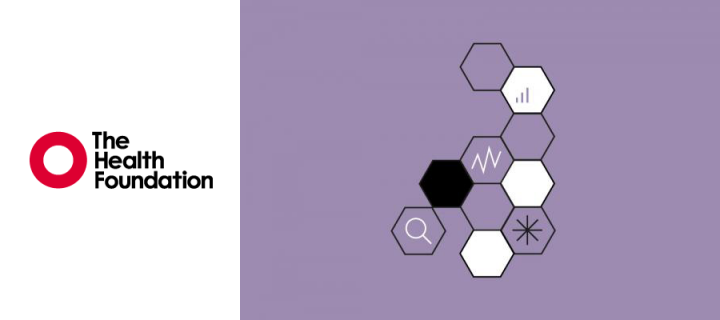Study to advance the use of national clinical audit and patient registry data to improve health care
Investigators from the Edinburgh Cancer Research Centre have been selected by the Health Foundation to be part of the latest round of its Insight Research Programme: May 2020

The Insight Research Programme from the Health Foundation supports original research projects that advance the development and use of data from national clinical audits and patient registries.
Audits and registries provide rich, nationally standardised information on the quality of care provided to patients. They have been used for research and quality improvement for a long time, yet there is widespread recognition that national clinical audits and registries need to be further developed if they are to help overcome the challenges faced by the health system.
The Health Foundation recently decided to support three project teams across the UK to develop clinical audits and registries so that they are more patient focused, reflect the totality of patient need and have greater impact on policy and practice. One of the projects: “Improving the QUALity and value of care for people with Poor Prognosis Cancers (I-qual-PPC)” - a national, mixed-methods study across Scotland, will be undertaken by a team of investigators from the University of Edinburgh. The team will be led by Professor Marie Fallon and Dr Peter Hall from the Edinburgh Cancer Research Centre and the project aims to improve care standards for people with poor prognosis cancers in Scotland. The project will use real-world data from national and regional datasets along with patient- and carer-reported experiences to examine clinical pathways and outcomes, and inform shared decision making.
Peter Hall, Jo Bowden and myself have the great fortune of working together with our oncology colleagues to improve patient care. Sadly of the 30,000 new patients diagnosed with cancer each year in Scotland, 30% will live less than a year. Oncologists often have difficult conversations around the therapeutic option of “Best Supportive Care”. This term is frequently used in clinical trials implying a particular standard of care. The reality is that Best Supportive Care means different things to different people, is not a defined type or standard of care, and is very susceptible to individual practices. We wish to evolve this so that professionals are clear about how to organise and deliver this care and that patients and carers can have informed discussions. We will harness the excellent data linkage processes available to look both retrospectively and prospectively. We can then describe the reality of Best Supportive Care and use this to move forwards with improved care.
Through our Insight Research Programme we are supporting research teams that have innovative, ambitious ideas that have the potential to transform the use of audit and registry data to improve quality of care. We are very excited to work with these three research teams to explore and better understand how data in these national clinical audits and patient registries can be used to have a tangible impact on patient care and experience.
Related Links
- The Health Foundation announcement about Insight Research Programme funding: https://www.health.org.uk/news-and-comment/news/advance-the-use-of-national-clinical-audit-and-patient-registry-data
- Information about the “Improving the QUALity and value of care for people with Poor Prognosis Cancers (I-qual-PPC) “ project: https://www.health.org.uk/funding-and-partnerships/programmes/improving-quality-of-care-for-people-with-poor-prognosis-cancers
- Professor Marie Fallon Group website: https://www.ed.ac.uk/cancer-centre/research/fallon-group
- Dr Peter Hall Group website: https://www.ed.ac.uk/cancer-centre/research/hall-group
- The Health Foundation website: https://www.health.org.uk/

